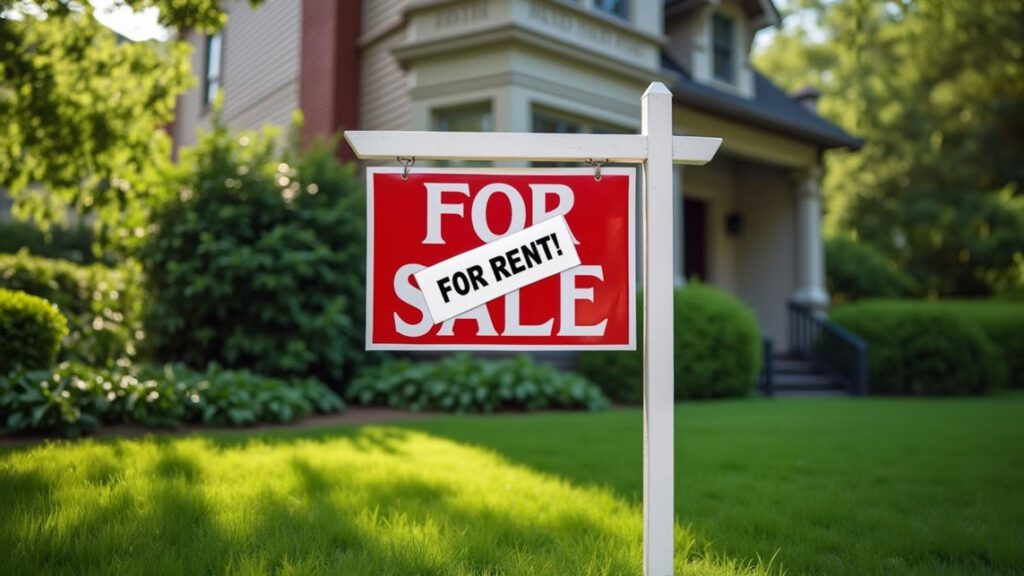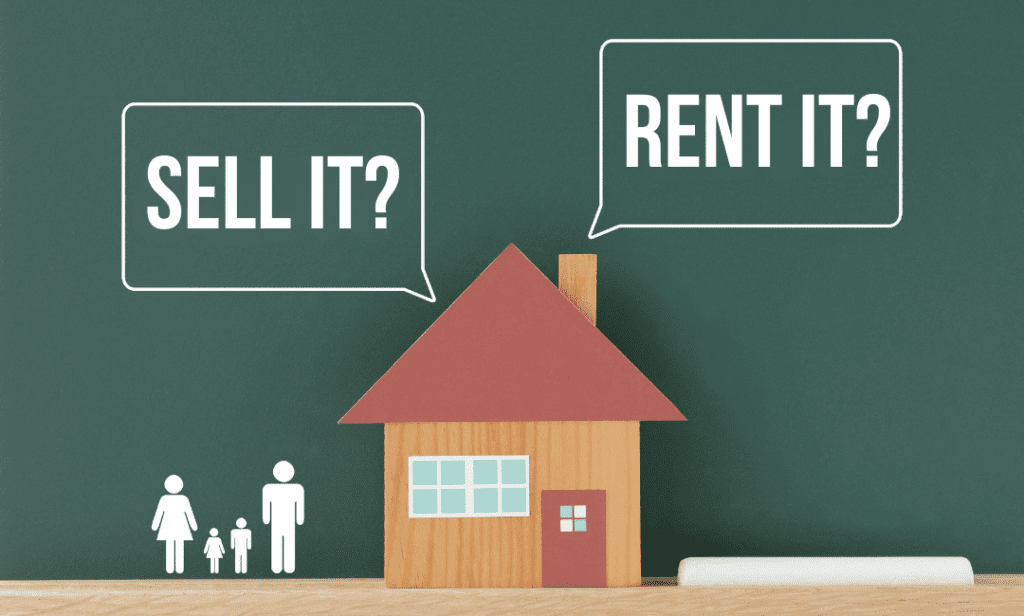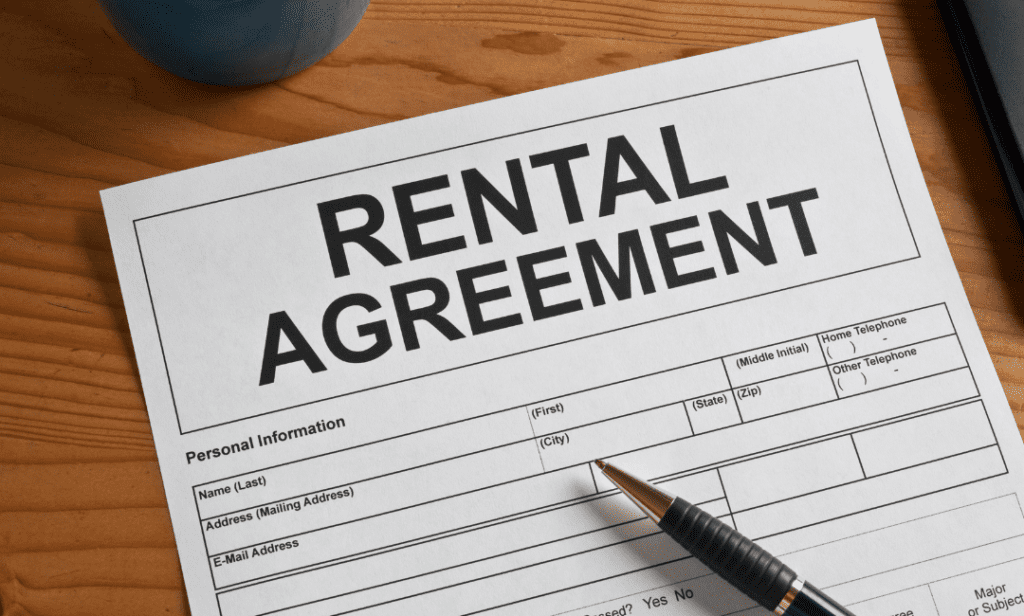Keep It, Don’t Sell It: How Your First Home Could Become Your First Rental
10/07/24

The dream of owning a home in Toronto has become increasingly elusive, with soaring prices and fierce competition. In a city where homeownership seems almost out of reach, what if the key to financial freedom isn’t selling your first property… but keeping it?
Growth In The Toronto Real Estate Market
The Toronto real estate market has consistently demonstrated its resilience, with annual appreciation rates averaging about 9% over the past 15 years. Homes in sought-after neighbourhoods, such as Baby Point Gates and High Park North, are especially well-positioned for steady value growth. Retaining a property in this competitive market capitalizes on potential appreciation and allows homeowners to secure ongoing financial returns through rental income.
Benefits of Keeping Your First Home
Keeping your first property as a rental offers several financial benefits, starting with the opportunity to generate a steady income stream. Monthly rental payments provide consistent cash flow, allowing homeowners to supplement their income while continuing to build equity in the property. Over time, the value of the home appreciates, contributing to long-term wealth accumulation in a way that often outperforms other high-risk investment vehicles like stocks or cryptocurrencies.
In addition to steady income and appreciation, there are potential tax benefits associated with owning rental properties. Homeowners can often deduct maintenance and operational costs, further enhancing profitability. Unlike more volatile investments, real estate also offers stability and predictability, which appeals to those looking for more secure returns.
Transition to Rental Options
Once you’ve decided to keep your first home as a rental property, there are several rental strategies to consider. Whether you’re interested in the steady income of long-term rentals, the flexibility of short-term leasing, or the high-reward potential of vacation rentals, each approach caters to different financial goals and personal circumstances.
Why Keep Your First Home?

Choosing to keep your first home as a rental property offers several financial and personal benefits that can enhance your long-term wealth and provide stability in an unpredictable market. From building equity to generating passive income, holding onto your property in Toronto’s appreciating real estate market is a savvy investment strategy for many homeowners.
Building Long-Term Wealth Through Real Estate
One of the primary reasons to keep your first home is the opportunity to build long-term wealth. As you continue to make mortgage payments, you’re not only reducing your debt but also increasing your equity — the portion of the property you entirely own. Over time, as property values rise, your equity grows even further, making the home a valuable financial asset. In Toronto, this is especially significant. Over the past 15 years, property values have risen by an average of 9% annually, with neighbourhoods like Bloor West Village and High Park showing solid growth. Leveraging the power of appreciation can result in substantial gains over the long term, especially in a market as robust as Toronto’s.
Diversifying Your Investment Portfolio
Real estate is an excellent way to diversify your investment portfolio, adding stability alongside other assets like stocks, bonds, or mutual funds. Unlike more volatile investments, property can act as a hedge against inflation — as prices rise, so does the value of your home and the amount you can charge for rent. While stocks and bonds can fluctuate based on market conditions, real estate often provides a more consistent, tangible investment, particularly in Toronto’s ever-growing housing market.
Cash Flow and Passive Income
Another benefit of retaining your first home is the ability to generate cash flow through rental income. In many cases, monthly rent can cover your mortgage payments and other expenses, creating a situation where your tenants are effectively paying off your property. Over time, as your mortgage balance decreases and rental rates rise, you could achieve positive cash flow, which can be used to supplement retirement savings, fund other investments, or simply provide additional income. This type of passive income is a key advantage of holding onto your home in the Toronto market.
Tax Benefits
Owning a rental property also comes with several tax advantages. Rental property owners can deduct many expenses, such as mortgage interest, property taxes, insurance, and maintenance costs, which can significantly reduce your taxable income. One of the most beneficial tax deductions is depreciation, which allows you to reduce the taxable value of the property even while it appreciates in market value. Additionally, holding onto the property long-term can be more tax-efficient than selling, as selling a rental property can trigger capital gains taxes, especially if the value has significantly increased.
Building Credit and Borrowing Power
Having a rental property can also improve your financial standing in terms of credit and borrowing power. As your property generates income and builds equity, it enhances your overall financial profile, making it easier to qualify for loans or mortgages on future investments. Lenders often view real estate as a stable asset, and successfully managing rental income can increase your credit score and help you secure favourable financing terms for future property purchases.
Emotional and Personal Benefits
For many homeowners, there’s an emotional attachment to their first home, and keeping it as a rental property allows you to maintain that connection. Whether it’s the sentimental value of your first purchase or the security of knowing you can always return to it if needed, there are personal benefits to holding onto your property. Moreover, having a rental property gives you flexibility in the future; you could use it to help family members with housing, or even move back yourself if your circumstances change.
Market Timing and Future Opportunities
Finally, keeping your first home allows you to avoid the uncertainties of timing the market when selling. The Toronto real estate market can be unpredictable, and selling at the wrong time could mean missing out on future appreciation. By holding onto the property, you maintain the flexibility to sell when market conditions are optimal, ensuring you capitalize on future growth opportunities. This long-term approach can lead to significantly higher returns than selling in a rush during a market downturn.
Rental Options to Consider
When deciding to keep your first home as a rental property, it’s essential to choose a rental strategy that aligns with your financial goals and lifestyle. Toronto offers a range of rental opportunities, from long-term leases to vacation rentals, each with its own set of benefits and challenges.
Long-Term Rentals
Long-term rentals typically involve leasing your property to tenants for a year or more. This option offers a stable, predictable income stream, with the advantage of lower tenant turnover, meaning less time spent finding new renters and managing the property. With long-term tenants, you also have the opportunity to build positive, lasting relationships, which can contribute to a smoother management experience.
However, it’s important to be aware of Toronto’s rent control regulations and tenant rights under Ontario’s Residential Tenancies Act. These laws protect tenants from significant rent increases, which can limit how much you can charge in certain situations. Rent control can vary depending on when your property was built, so it’s crucial to understand how these rules apply to your home. Rental rates in neighbourhoods like High Park, Junction Triangle, and Swansea can vary, but they tend to remain strong, offering a solid return for long-term leases.
Short-Term Rentals (6 months to 1 year)
If you’re looking for more flexibility, short-term rentals (leases lasting six months to a year) offer an appealing middle-ground option. These rentals cater to professionals on temporary work assignments, newcomers to Toronto, or those in transition between homes. This strategy allows you to adjust rental periods based on your personal schedule and potentially charge higher rates than traditional long-term leases.
However, short-term rentals come with challenges, such as more frequent tenant turnover, which can lead to longer vacancy periods between renters. Additionally, tenants may expect the property to be furnished and equipped with specific amenities, which adds to the upfront cost and ongoing management effort.
Vacation Rentals (e.g., Airbnb)

Vacation rentals, like those listed on Airbnb, are a popular choice for homeowners looking to maximise income during high-demand periods, such as the summer months or during major Toronto events and festivals. With nightly or weekly rates often higher than long-term leases, vacation rentals can be a lucrative option for generating additional cash flow. They also offer the flexibility to use the property yourself between bookings, allowing you to enjoy the home while earning income when you’re not using it.
However, Toronto has specific short-term rental regulations, including licensing requirements, that you must comply with if you’re operating a vacation rental. In addition, vacation rentals tend to require more hands-on management and frequent maintenance, as well as higher cleaning costs between stays. Demand can also fluctuate seasonally, so income might not be consistent year-round.
Corporate Housing
Corporate housing is a specialized rental option targeting business travelers and executives who need temporary accommodation. These rentals are often fully furnished and provide a more luxurious, high-end experience. Corporate housing offers the potential for higher rental income than standard long-term leases, as companies frequently cover the costs for their employees, and stays can range from a few weeks to several months.
However, corporate housing requires maintaining high standards for furnishings and amenities to meet the expectations of business clients. You may also need to build relationships with corporations or relocation companies to secure a steady stream of clients. While demand for corporate housing can be strong, it may decline during economic downturns, which can affect occupancy rates.
Hybrid Approaches
A hybrid approach may be the perfect solution for homeowners who want flexibility. This strategy combines different rental types based on the time of year or market demand. For instance, you could lease your home as a long-term rental during the off-peak season, then switch to short-term or vacation rentals during high-demand periods like summer or holiday seasons.
This hybrid approach maximizes income during peak rental times while ensuring consistent occupancy throughout the year. However, managing transitions between rental types requires careful planning, including lease agreements and property preparation between tenants.
Rent-to-Own Arrangements
A rent-to-own or lease-option agreement is another rental strategy to consider. In this arrangement, tenants rent the property with the option to buy it after a specified period. This can be a beneficial solution for both parties: the tenant has time to build credit or save for a down payment, while the homeowner secures a committed tenant who may eventually purchase the property.
Rent-to-own agreements come with their own legal and financial considerations, including carefully structured contracts to protect both parties. Understanding the rules and regulations in Toronto and Ontario is crucial before entering into such an arrangement, as they can vary depending on local market conditions.
Who Would Be Interested in Renting Your Property?
Understanding your target tenant is vital to successfully positioning your property in Toronto’s rental market. Renters come from various backgrounds, each with different motivations and needs. You can tailor your rental strategy and maximize its appeal by identifying the groups most likely to be interested in your property.
Young Professionals
Young professionals are a significant portion of Toronto’s rental market, especially in vibrant neighbourhoods close to downtown, like Junction Triangle or Swansea. These renters are often looking for convenient access to transit, amenities, and employment hubs. Many young professionals are at the start of their careers and may not be ready to purchase a home. Renting allows them to live in desirable areas without the long-term commitment of home ownership.
Motivations:
- Proximity to work and social activities
- Flexibility to relocate for career opportunities
- Desire to live in well-connected, urban neighbourhoods
Benefits for Young Professionals:
- They often have stable incomes and are looking for convenient, move-in-ready homes.
- They tend to be drawn to properties with modern amenities like high-speed internet and smart home features, which makes upgrades like keyless entry or smart thermostats more attractive.
Families
Families, particularly those with young children, often seek rental properties in more residential neighbourhoods, such as High Park or Baby Point Gates. They are typically looking for larger homes with multiple bedrooms, outdoor space, and proximity to good schools and parks.
Motivations:
- The need for more space as their families grow
- Access to good school districts and family-friendly amenities
- Flexibility for those who may not be ready to buy a home yet
Benefits for Families:
- Families are likely to be long-term renters, which means lower turnover and stable rental income for landlords.
- They tend to prefer unfurnished properties, allowing them to personalise the space, and may also appreciate homes with outdoor areas or nearby parks.
Students
Toronto is home to several major universities and colleges, making students a reliable market for rental properties, particularly in areas with easy access to transit, like Bloor West Village. Student renters typically seek affordable, shared housing, often in close proximity to their campus.
Motivations:
- Proximity to universities and public transit
- Affordability and the option to rent with roommates
- Short-term leases or flexibility due to academic schedules
Benefits for Students:
- Properties near campuses or transit hubs can be rented quickly, especially at the start of each academic year.
- Students are often more flexible with property features as long as the location is convenient and rent is affordable.
Newcomers and Immigrants
Toronto’s growing population includes a large number of newcomers and immigrants, who often prefer renting as they settle into a new city. These individuals or families may not be ready to commit to purchasing a home right away as they familiarise themselves with Toronto’s neighbourhoods and job market.
Motivations:
- Flexibility while adjusting to a new city
- Proximity to cultural communities, employment centres, and services
- Shorter-term housing options before buying a home
Benefits for Newcomers:
- Many newcomers are eager to find stable, well-located housing and may be open to both long-term and short-term rentals.
- Offering furnished properties can appeal to this group, as they may not yet have their own furniture upon arriving in Canada.
Corporate Tenants and Executives

For owners looking to maximise rental income, corporate tenants and executives represent an excellent target market, particularly in upscale areas of Toronto. These individuals are often relocating for work and are in need of high-end, fully furnished rental properties for a temporary period.
Motivations:
- Temporary relocation for work assignments
- The need for upscale, well-appointed housing near business districts
- Short-term or flexible lease options that accommodate temporary stays
Benefits for Corporate Tenants:
- Corporate rentals often command higher rental rates, especially for furnished properties with premium amenities.
- These tenants are typically professionals with reliable incomes and strong financial backing from their employers, reducing the risk of late or missed rent payments.
Retirees and Downsizers
Some retirees or empty nesters may be looking to downsize from their own home into a rental property. This demographic is often seeking comfortable, low-maintenance living in quieter neighbourhoods with access to healthcare, parks, and amenities.
Motivations:
- Downsizing to reduce the responsibilities of home ownership
- Flexibility and freedom to travel or spend time in multiple residences
- Living in smaller, more manageable spaces that require less upkeep
Benefits for Retirees:
- Retirees are likely to be long-term, stable tenants, especially if they appreciate the low-maintenance lifestyle of renting.
- They may prefer properties with accessibility features or proximity to essential services, making these features appealing upgrades for a rental property.
By understanding the needs and motivations of these diverse tenant groups, you can better align your rental strategy with the market, ensuring your property appeals to the right audience. Whether you’re catering to young professionals seeking a trendy urban space or families looking for a home in a community-oriented neighbourhood, knowing your audience helps you make strategic decisions about pricing, upgrades, and lease terms.
Factors to Consider
Turning your first home into a rental property requires thorough planning and consideration of multiple factors. From understanding Toronto’s rental market trends to ensuring legal compliance and managing the financial aspects, each decision will impact the success of your rental strategy.
Toronto’s Rental Market Trends
Toronto’s rental market continues to experience strong demand, driven by population growth, immigration, a robust job market, and a large student population. Average rental prices vary depending on the property type and neighbourhood, with areas such as High Park, Junction Triangle, and Runnymede typically commanding higher rates due to their proximity to transit, amenities, and employment centres.
Vacancy rates in the city remain low, making Toronto a landlord-friendly market with high demand for rental units. Future growth in rental demand is likely as the city continues to attract new residents, with rental demand expected to stay strong, especially in neighbourhoods popular among young professionals and families. Monitoring market trends, such as shifts in average rental prices and demand, is essential for making informed decisions on rental pricing and investment opportunities.
Legal and Regulatory Environment
Before renting out your property, it’s crucial to understand Ontario’s Residential Tenancies Act (RTA), which outlines the rights and responsibilities of both landlords and tenants. The Act includes regulations on rent control, tenant eviction procedures, and maintenance obligations. Depending on when your property was built, rent control may apply, limiting how much you can raise rent annually.
For those considering short-term rentals, Toronto has specific bylaws and licensing requirements. For example, properties listed on platforms like Airbnb must be registered, and there are limitations on how often you can rent them out. Compliance with these regulations is essential to avoid fines or legal disputes. Additionally, landlords must ensure their property meets Toronto’s safety standards, including functioning smoke detectors, secure locks, and regular property maintenance to prevent hazards.
Staying up to date on any potential legislative changes is critical, as future modifications to the RTA or Toronto’s rental regulations could affect your rental strategy and obligations as a landlord.
Financial Considerations
Financial planning is key when turning your home into a rental property. The initial costs of preparing the property, such as renovations, upgrades, or furnishing for short-term rentals, can be substantial. Ensuring your home is in prime condition will make it more attractive to potential tenants and can justify higher rental rates. Furnished units, particularly for corporate housing or short-term rentals, often require a more significant upfront investment.
Ongoing expenses include property taxes, insurance, and regular maintenance costs. Property management fees, if you choose not to self-manage, are another expense to account for. Additionally, rental income is subject to income tax, and when selling the property in the future, capital gains tax may apply. On the positive side, landlords can claim deductions for various expenses such as mortgage interest, property repairs, and professional fees, which can help offset your tax liability.
Property Management Options
Deciding whether to manage your rental property yourself or hire a professional property management company is an important consideration. Self-management can be cost-effective but requires significant time and effort, especially if you are managing multiple tenants or handling short-term rentals. You’ll need strong organisational and communication skills to deal with tenant issues, repairs, and rent collection.
On the other hand, professional property management can handle all aspects of the rental process, including marketing, tenant screening, and maintenance. While professional management comes with additional fees (usually 8-12% of the monthly rent), it significantly reduces the time commitment and stress involved in managing a rental property.
Location and Property Characteristics
The location of your property plays a critical role in its rental potential. Homes located near transit hubs, schools, and employment centres tend to be more desirable, which can lead to higher rental rates and lower vacancy periods. Neighbourhood safety and amenities such as parks, restaurants, and shopping options also factor into how attractive your property will be to potential tenants.
Different types of tenants, such as families, students, or young professionals, may have specific needs. For example, families may prioritize larger homes in quieter neighbourhoods like Baby Point Gates, while young professionals might prefer smaller units near the downtown core or subway lines. Understanding your target demographic will help you market the property effectively and ensure tenant satisfaction.
Personal Goals and Circumstances
When deciding whether to keep your first home as a rental property, it’s essential to align your decision with your personal financial goals. Do you want to generate immediate cash flow from rental income, or are you more focused on long-term wealth accumulation through property appreciation? If personal use of the property is important to you — for instance, using it as a second home or keeping it available for family — this will influence the type of rental strategy you choose.
You should also consider your risk tolerance. Rental properties can come with tenant turnover, vacancies, and unexpected expenses, so it’s important to be comfortable with the possibility of periods without rental income or handling issues with tenants.
Market Positioning and Target Tenant Profile
Successfully positioning your property in the rental market requires understanding who your ideal tenants are. In neighbourhoods like Swansea or Bloor West Village, you may attract families or professionals looking for a quiet, community-oriented environment. On the other hand, properties closer to downtown might appeal to students, young professionals, or corporate tenants.
Developing a clear strategy for attracting and retaining quality tenants is vital to maintaining consistent rental income and minimising turnover. Offering competitive rental rates, maintaining the property in good condition, and being responsive to tenant needs can help build strong relationships and encourage longer tenancies.
Financing and Mortgage Considerations
Keeping your home as a rental property may affect your future borrowing capacity. Rental income can strengthen your financial profile and help qualify for additional mortgages or refinancing options. Refinancing your current mortgage could provide access to the equity in your home, which could be used for property improvements or other investments. However, it’s important to understand how mortgage rules apply to rental properties, as lenders may have specific requirements, such as higher down payments or interest rates.
Insurance Requirements
Rental properties have different insurance needs compared to owner-occupied homes. You’ll need to update your policy to ensure proper coverage for rental properties, whether they are long-term, short-term, or vacation rentals. Insurance should cover property damage, liability protection, and loss of rental income in case the home becomes uninhabitable. If you are renting out a furnished house or running a vacation rental, additional coverage for contents and liability may be required.
Preparing Your Property for Rental

Once you’ve decided to turn your first home into a rental property, preparing it for tenants is the next crucial step. Ensuring that the property is in excellent condition, meets legal standards, and is appealing to renters will help you attract quality tenants and maximise your rental income.
Assessing Your Property’s Condition
Before listing your property, start with a thorough inspection to assess its current condition. This will help you identify any necessary repairs or upgrades that need to be addressed before tenants move in. Common issues to look for include plumbing leaks, faulty electrical systems, or wear and tear on major appliances. Create a maintenance schedule to address minor repairs over time and keep the property in good shape.
Renovations and Upgrades
Certain renovations can increase your rental property’s value and make it more attractive to potential tenants. Focus on high-impact areas such as kitchens and bathrooms, where updates can yield a strong return on investment. Replacing or refinishing flooring, applying fresh paint, and making cosmetic touch-ups are other ways to give the home a refreshed look without breaking the bank.
Energy-efficient upgrades like new windows, improved insulation, and updated HVAC systems can benefit both you and your tenants. These improvements reduce energy costs and make the property more comfortable, which can be a major selling point for environmentally-conscious renters. Additionally, adding smart home technologies, such as security systems, smart thermostats, and keyless entry, can enhance the property’s appeal and improve convenience for tenants.
Compliance with Toronto’s Rental Property Standards
Ensuring your property meets Toronto’s rental property standards is not just a good practice but a legal requirement. Safety features are essential, including working smoke and carbon monoxide detectors in key locations throughout the home. Fire extinguishers and accessible escape routes are also mandatory in rental properties. Depending on your property’s design, you may need to consider accessibility features as well to meet specific regulations.
Furnishing and Staging
Whether to rent your property furnished or unfurnished depends on your target market and rental strategy. Long-term tenants may prefer unfurnished spaces to bring their own belongings, while short-term or corporate rentals typically expect furnished units. If you choose to furnish the property, opt for durable, easy-to-clean materials that can withstand regular use. High-quality furnishings that are both functional and stylish can also help attract tenants, while proper staging techniques will make the space more inviting in listings and showings.
If you plan to rent the home partially furnished, ensure you have appropriate storage solutions for personal items that you won’t want to leave in the property.
Creating an Appealing Outdoor Space
First impressions matter, and an attractive outdoor space can significantly boost your property’s curb appeal. Landscaping improvements, such as fresh plants or a well-maintained lawn, can create a welcoming atmosphere. If the property has outdoor living spaces like a patio or deck, consider adding or upgrading outdoor furniture to enhance the space’s appeal. Regular maintenance of the outdoor areas will ensure that they stay in good condition throughout the rental period.
Documentation and Record-Keeping
Creating a detailed property inventory is essential for both you and your tenants. This inventory should include photos and descriptions of the property’s condition, as well as any furnishings or appliances provided. Thorough documentation helps avoid disputes about damage or wear and tear during the tenancy. Additionally, set up a system for tracking expenses and income related to the property, which will be helpful for both financial management and tax purposes.
Utilities and Services
Deciding which utilities to include in the rent is another consideration. Many landlords include water and internet, but leave hydro and heating costs to the tenant. Setting up accounts for these services in advance ensures a smooth transition when new tenants move in. If possible, installing separate meters for utilities can help clarify usage and reduce disputes.
Insurance Updates
Transitioning from homeowner’s insurance to landlord’s insurance is an essential step. Landlord policies cover risks that homeowner policies do not, including liability protection in case of tenant-related accidents. Depending on your rental strategy (e.g., long-term vs. short-term), you may need additional coverage. Liability protection for incidents like property damage or injury is crucial for protecting yourself against potential lawsuits.
Creating a Tenant Welcome Package
Creating a tenant welcome package can help set the tone for a positive relationship with your new tenants. This package might include important information about the property, such as appliance manuals, instructions for using home systems, and contact details for any service providers (e.g., landscaping or snow removal). It’s also helpful to compile information about the neighbourhood, including transit options, nearby amenities, and local community resources.
Additionally, developing clear house rules and expectations from the beginning ensures that tenants understand their responsibilities, from maintaining cleanliness to respecting property boundaries.
Professional Cleaning and Maintenance
A professional deep clean before listing the property or moving in new tenants is essential. This will not only make the property more attractive to prospective tenants but also set a standard for cleanliness that tenants will be expected to maintain. Consider setting up contracts with service providers for ongoing maintenance, such as cleaning services, landscaping, or pest control. This will help keep the property in top condition and prevent minor issues from escalating.
Technology and Connectivity
Modern renters often prioritise connectivity, so ensuring the property has high-speed internet is a must. If you are providing short-term or corporate housing, installing or upgrading television services might also be necessary. Additionally, setting up online payment systems for rent collection can make the process easier and more convenient for both you and your tenants.
Security Measures
Lastly, security is a key consideration for both landlords and tenants. Upgrading locks, installing secure key management systems, or adding security cameras (with proper tenant disclosure) can give both parties peace of mind. Establishing clear protocols for emergency situations, such as break-ins or other safety concerns, ensures that tenants know how to respond and who to contact in case of an issue.
Legal Considerations
Renting out your property in Toronto comes with a variety of legal responsibilities. Understanding the legal framework that governs rental properties will help you protect your investment and maintain positive relationships with your tenants. This section covers the key legal considerations you should be aware of before renting out your home.
Understanding Ontario’s Residential Tenancies Act
Ontario’s Residential Tenancies Act (RTA) is the primary legislation governing rental agreements between landlords and tenants in the province. The RTA outlines the rights and responsibilities of both parties, providing legal protection and guidelines for maintaining fair rental practices. Key provisions of the Act include regulations on rent increases, tenant eviction processes, and the maintenance obligations of landlords. It also sets out tenant rights, such as the right to privacy and quiet enjoyment of their home.
Recent updates to the RTA have focused on strengthening protections for tenants and clarifying landlord responsibilities, making it important for property owners to stay informed about these changes.
Navigating Toronto’s Short-Term Rental Regulations
For homeowners interested in short-term rentals, Toronto has specific regulations to follow. Short-term rentals are defined as stays of 28 consecutive days or less, often facilitated through platforms like Airbnb. Operators must register their property and obtain a licence from the city to comply with local bylaws. There are also restrictions on the number of nights a property can be rented out, with a primary residence limit of 180 nights per year for short-term rentals.
It’s crucial to ensure that your property meets these licensing requirements and that you comply with restrictions on types of properties eligible for short-term rentals. Failure to do so can result in fines or legal action. Refer to this PDF document for more details: Toronto Municipal Code Chapter 547 – Licensing and Registration of Short-Term Rentals
Creating Solid Lease Agreements

Whether you are renting your property on a long-term or short-term basis, having a legally binding lease agreement is essential. A lease outlines the terms and conditions of the rental, including the rent amount, payment due dates, duration of the tenancy, and tenant responsibilities.
When customising a lease for different rental strategies, it’s important to include clauses that protect your interests. For example, long-term leases may include provisions for rent increases and maintenance responsibilities, while short-term rental agreements might cover the terms for use of the property and rules around noise or guest limits. Clearly stating all terms in the lease reduces misunderstandings and ensures both parties are on the same page.
Tenant Rights and Landlord Responsibilities
As a landlord, you have certain obligations to your tenants under the law. Tenants have the right to quiet enjoyment and privacy within their rented home, meaning you cannot enter the property without giving appropriate notice (typically 24 hours in advance) unless there is an emergency. You are also responsible for maintaining the property in a state of good repair, including performing any necessary maintenance and ensuring that heating, plumbing, and electrical systems are functioning correctly.
Handling tenant complaints and disputes is another responsibility. Resolving issues quickly and professionally can help maintain a positive landlord-tenant relationship and avoid escalating conflicts.
Rent Control and Increases
Toronto’s rent control laws are a significant consideration for landlords, particularly when it comes to increasing rent. The RTA limits how much landlords can increase rent each year, with allowable increases announced annually by the Ontario government. If your property is subject to rent control, you must provide tenants with at least 90 days’ notice before raising rent, using the prescribed forms.
However, there are exceptions to these rules, such as for buildings constructed after 2018, which are exempt from rent control. Understanding whether your property falls under these exemptions is essential when setting your rental strategy.
Eviction Processes and Grounds
In Ontario, landlords can only evict tenants for specific reasons, such as non-payment of rent, damage to the property, or the landlord’s need to move into the property. Eviction is a legal process that requires the proper serving of notices and, if necessary, a hearing before the Landlord and Tenant Board. Following the correct procedures is critical to avoid disputes or legal repercussions.
Security Deposits and Last Month’s Rent
Ontario law places strict limits on the types of deposits landlords can collect. Landlords are permitted to ask for last month’s rent deposit, but additional security deposits are not allowed. This deposit must be applied to the final month of the tenancy, and landlords are required to pay interest on it annually, based on a percentage set by the provincial government. Properly handling deposits is essential to avoid disputes with tenants.
Human Rights Code Compliance
Landlords must comply with the Ontario Human Rights Code, which prohibits discrimination in the selection and treatment of tenants. You cannot refuse to rent to someone based on race, gender, family status, or any other protected characteristic. Additionally, landlords must accommodate tenants with special needs, such as making reasonable modifications to the property for accessibility.
It’s important to be mindful of language used in rental advertisements and tenant screening to avoid inadvertent discrimination.
Privacy Laws and Information Handling
As a landlord, you will collect personal information from tenants, including their rental applications, employment details, and financial information. It’s essential to comply with privacy laws by securely storing this information and ensuring that it is only used for legitimate rental purposes. Additionally, if you choose to install video surveillance on the property, you must inform tenants and ensure it complies with privacy regulations. Refer to these Privacy laws in Ontario for more information.
Insurance and Liability
Owning a rental property requires appropriate landlord insurance, which covers property damage, liability for injuries, and loss of rental income in certain circumstances. In addition to property insurance, it’s a good idea to encourage tenants to obtain their own renter’s insurance to cover their personal belongings and liability.
Landlord liability is an important consideration, especially if a tenant or visitor is injured on the property. Ensuring that your insurance policy covers these risks will help protect you from potential legal claims.
Tax Implications
Rental income must be reported to the Canada Revenue Agency (CRA), and landlords can deduct various expenses related to operating the rental property, such as mortgage interest, repairs, and maintenance. Understanding the allowable deductions and ensuring proper record-keeping will help minimise your tax liability.
If you decide to sell your rental property in the future, you may be subject to capital gains tax on the appreciation in value. Planning for this potential tax liability is important when considering long-term ownership of a rental property.
Zoning and Municipal Bylaws
It’s crucial to ensure that your rental property complies with Toronto’s zoning laws and municipal bylaws, which govern how properties can be used. For instance, there may be restrictions on short-term rentals in certain areas or noise and nuisance bylaws that impact how the property is managed.
Additionally, properties must comply with Toronto’s property standards bylaws, ensuring that they meet minimum requirements for safety, maintenance, and habitability.
Condo Corporation Rules (if applicable)
If your property is part of a condominium, you must adhere to the condo corporation’s bylaws. These rules may restrict the ability to rent out units, limit the number of short-term rentals, or impose regulations that your tenants must follow. As a landlord, it’s your responsibility to communicate these rules to your tenants to avoid penalties or disputes with the condo board.
Legal Resources and Support
Managing a rental property can be complex, and it’s important to have access to legal resources and support. In Toronto, several landlord associations offer guidance, resources, and support to help navigate the legal aspects of renting out your property. Additionally, it’s advisable to consult with a real estate lawyer, mainly when dealing with lease agreements, eviction processes, or any disputes. Accessing government resources for landlords can also provide valuable information on legal requirements and updates. See the Tribunals Ontario website for up to date information.
Financial Analysis

When deciding to keep your first home as a rental property, conducting a thorough financial analysis is crucial to understanding the potential returns, costs, and risks involved. This section covers the key financial factors to evaluate to ensure your rental strategy is both profitable and aligned with your long-term investment goals.
Initial Investment Considerations
Start by evaluating the current market value of your property and comparing it to your outstanding mortgage balance. This will give you a clear picture of your equity position, which represents the value you own outright. If you have significant equity, you may have the potential to leverage it for future investments or property improvements.
Understanding your equity is the foundation of any rental strategy, as it influences your ability to refinance, fund upgrades, or expand your real estate portfolio.
Projected Rental Income
The next step is to research market rents in your area to estimate the potential income your property can generate. Different rental strategies will yield varying levels of income, so it’s important to evaluate each option:
- Long-term rentals generally provide stable, predictable monthly income. To estimate rental income, research comparable properties in your neighbourhood (e.g., High Park, Junction Triangle) to see what similar homes are charging.
- Short-term rentals (six months to a year) might command higher monthly rates but could come with more tenant turnover. These rentals appeal to professionals on temporary assignments or newcomers to Toronto.
- Vacation rentals (e.g., Airbnb) can generate higher income during peak periods like summer months or festivals, but income may fluctuate seasonally. Consider the occupancy rate and seasonal demand when projecting your rental income from vacation rentals.
Operating Expenses
Beyond rental income, it’s essential to account for ongoing operating expenses associated with managing a rental property. These include:
- Mortgage payments: Ensure you have enough rental income to cover or exceed monthly mortgage obligations.
- Property taxes: Toronto’s property tax rates will impact your bottom line, so include these in your expense calculations.
- Insurance: Landlord-specific insurance policies typically cost more than standard homeowner policies.
- Utilities: If you plan to cover utilities (especially for short-term rentals), include the costs of water, electricity, gas, and internet in your expense estimates.
- Maintenance and repairs: A good rule of thumb is to budget 1-2% of your property’s value annually for ongoing maintenance.
- Property management fees: If you’re hiring a professional manager, costs can range from 8-12% of your rental income.
- Cleaning and turnover costs: These are especially important for short-term or vacation rentals, where regular cleanings between tenants are required.
- Marketing and advertising: If you’ll be actively promoting your property to find tenants, consider the cost of listings and other promotional efforts.
Capital Expenditures
Beyond regular maintenance, plan for capital expenditures (CapEx), which are larger, less frequent expenses necessary to maintain the property’s value:
- Roof, HVAC, and appliances: These major systems will eventually need to be repaired or replaced, so it’s wise to set aside funds for such eventualities.
- Renovation costs: If you’re planning to upgrade your property to make it more appealing to tenants, factor these renovation costs into your financial analysis.
Cash Flow Analysis
To calculate your property’s cash flow, subtract your operating expenses from your rental income to determine your net operating income (NOI). This figure will give you a clear sense of how much money the property is generating after expenses.
Once you have your NOI, you can determine your cash-on-cash return, which measures your return on the actual cash you’ve invested in the property. By projecting your cash flow over 5, 10, and 20 years, you can evaluate the long-term profitability of holding the property as a rental.
Tax Implications
Owning a rental property comes with specific tax implications, including:
- Rental income taxation: All rental income must be reported to the Canada Revenue Agency (CRA), and you’ll be taxed accordingly.
- Deductible expenses: The CRA allows landlords to deduct various expenses, such as mortgage interest, property taxes, repairs, and property management fees, which can reduce your overall tax liability.
- Depreciation benefits: You may be able to claim depreciation on certain aspects of the property, providing additional tax benefits.
- Capital gains tax: If you sell the property in the future, any appreciation in value will be subject to capital gains tax, so it’s important to plan for this potential tax liability.
Comparative Analysis
It’s helpful to perform a comparative analysis to evaluate whether keeping the property as a rental is the best option compared to selling it. Consider the potential sale proceeds if you were to sell now, and compare it to the long-term return on investment (ROI) of holding the property and collecting rental income.
Additionally, compare your expected rental returns with other investment options, such as stocks, bonds, or alternative real estate investments, to assess the opportunity cost of keeping the property.
Financing Considerations
If you have significant equity in your property, you may be able to explore refinancing options to access cash for further investments or renovations. However, refinancing will impact your borrowing capacity for future real estate purchases. It’s important to consider various interest rate scenarios and their impact on your long-term profitability, mainly if mortgage rates fluctuate during the term of the loan.
Risk Assessment
Like any investment, renting out your property comes with certain risks. Key risks to assess include:
- Vacancy risk: Mitigate vacancy risk by pricing the property competitively and marketing it effectively.
- Market downturns: Consider how a downturn in the Toronto housing market might impact rental demand or property values.
- Regulatory changes: Shifts in local rental laws, such as changes to rent control or short-term rental regulations, could affect profitability.
Growth Projections
Toronto has experienced historical solid appreciation rates in property values, with some areas seeing annual increases of 9% or more. When projecting the future value of your property, consider historical trends and current market conditions to estimate potential property value increases. Additionally, account for the possibility of rental rate increases over time, particularly in high-demand neighbourhoods like Bloor West Village or Runnymede.
Break-Even Analysis
To determine when your rental investment will become profitable, conduct a break-even analysis. This analysis will show you how long it will take for rental income to cover your initial costs and operating expenses. The time to profitability can vary based on factors like mortgage rates, vacancy periods, and the scale of your initial investment.
Return on Investment (ROI) Calculations
To evaluate the overall success of your rental property, calculate the ROI by comparing your net profits to your initial investment. Use cap rate analysis and internal rate of return (IRR) projections to assess your property’s performance over time and compare it to other real estate investments in Toronto.
Exit Strategy Considerations
Finally, consider your exit strategy. If you plan to sell the property in the future, evaluate potential sale scenarios, including the timing of the sale to maximise returns. Compare the tax implications of selling versus holding the property long-term, particularly in terms of capital gains tax.
Your Path to Smart Real Estate Investment

Keeping your first home as a rental property offers an exciting opportunity to build long-term wealth, diversify your investment portfolio, and take advantage of Toronto’s robust real estate market. Whether you opt for the stability of long-term rentals or the flexibility of short-term options, rental properties can provide a consistent income stream while allowing you to continue benefiting from property value appreciation.
Of course, there are legal and financial considerations to weigh, from understanding Ontario’s landlord-tenant laws to managing the costs associated with property upkeep. However, with the proper planning and support, these responsibilities can be effectively managed.
Weighing the Pros and Cons
While rental properties can be financially rewarding, it’s important to balance potential gains against the responsibilities of being a landlord. Every homeowner’s circumstances are unique, and your personal goals—whether to generate immediate cash flow or focus on long-term equity growth—will play a key role in determining the best path forward.
Market Outlook
Toronto’s real estate market continues to show resilience, and projections suggest ongoing demand for rental properties, driven by a growing population and a strong job market. These trends create promising conditions for rental property owners, especially in sought-after neighbourhoods like High Park and Bloor West Village.
Steps to Get Started
If you’re ready to explore the potential of keeping your home as a rental, start by assessing your financial position and reviewing your property’s rental potential. Research the local rental market, and make any necessary upgrades to attract tenants. From there, you can decide whether to manage the property yourself or hire a professional property manager.
Final Thoughts
Turning your first home into a rental property can be a powerful tool for building wealth, but success requires thoughtful planning and ongoing attention to both market trends and legal requirements. To take the next step, contact The Smith Proulx Team. We can guide you through every aspect of this decision—from understanding the market to finding the perfect rental strategy that fits your goals.
Take the first step toward making your property work for you—reach out to The Smith Proulx Team today and explore your options.
Not sure you can manage renting your current home?
The Smith Proulx Team has the knowledge and experience to help you make the best decision. Let's chat about it!



